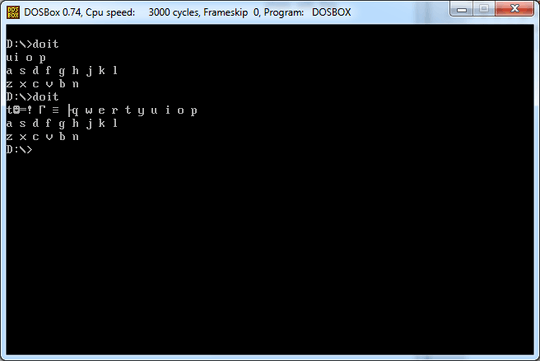37
3
Given a character, output (to the screen) the entire qwerty keyboard layout (with spaces and newlines) that follows the character. The examples make it clear.
Input 1
f
Output 1
g h j k l
z x c v b n m
Input 2
q
Output 2
w e r t y u i o p
a s d f g h j k l
z x c v b n m
Input 3
m
Output 3
(Program terminates without output)
Input 4
l
Output 4
z x c v b n m
Shortest code wins. (in bytes)
P.S.
Extra newlines, or extra spaces at the end of a line are accepted.

Is a function sufficient or do you require a full program that reads/writes to stdin/stdout? – agtoever – 2015-11-24T14:47:26.217
1
@agtoever As per http://meta.codegolf.stackexchange.com/questions/7562/is-a-function-allowed, it is allowed. However, the function must still output to the screen .
– ghosts_in_the_code – 2015-11-24T14:56:27.407@agtoever Try this link instead. http://meta.codegolf.stackexchange.com/questions/2419/default-for-code-golf-program-function-or-snippet
– ghosts_in_the_code – 2015-11-24T15:06:05.993I like the ones that don't have the keyboard layout visible explicitly in the code. They should get bonus marks :) – GreenAsJade – 2015-11-25T05:46:38.740
At first i was confused by input 4, then I realised that it's a small L and not a decimal one – dwana – 2015-11-25T11:30:41.470
1are leading space before a line allowed? – Sahil Arora – 2015-11-27T21:56:39.243
1@SahilArora Nope. – ghosts_in_the_code – 2015-11-28T03:24:53.130
Might this qualify for [tag:kolmogorov-complexity] ? Not sure though – Cyoce – 2016-01-12T07:19:06.383